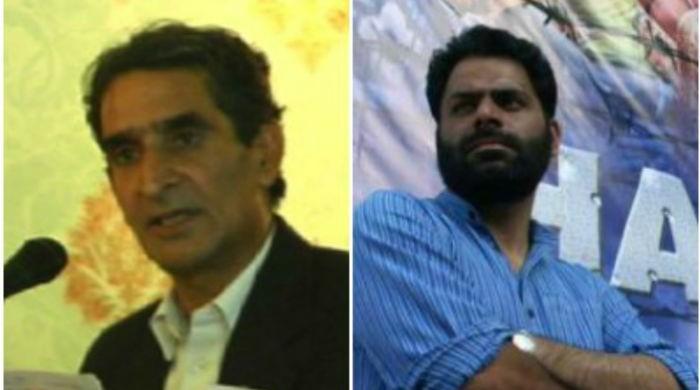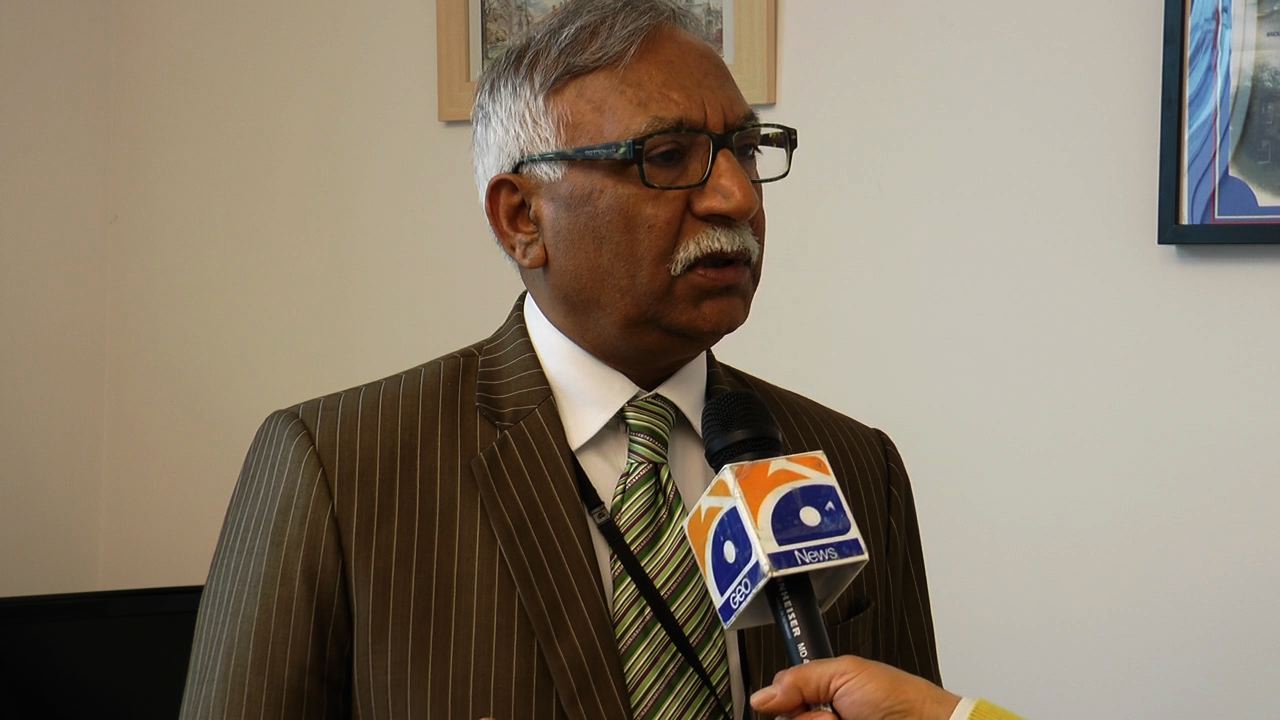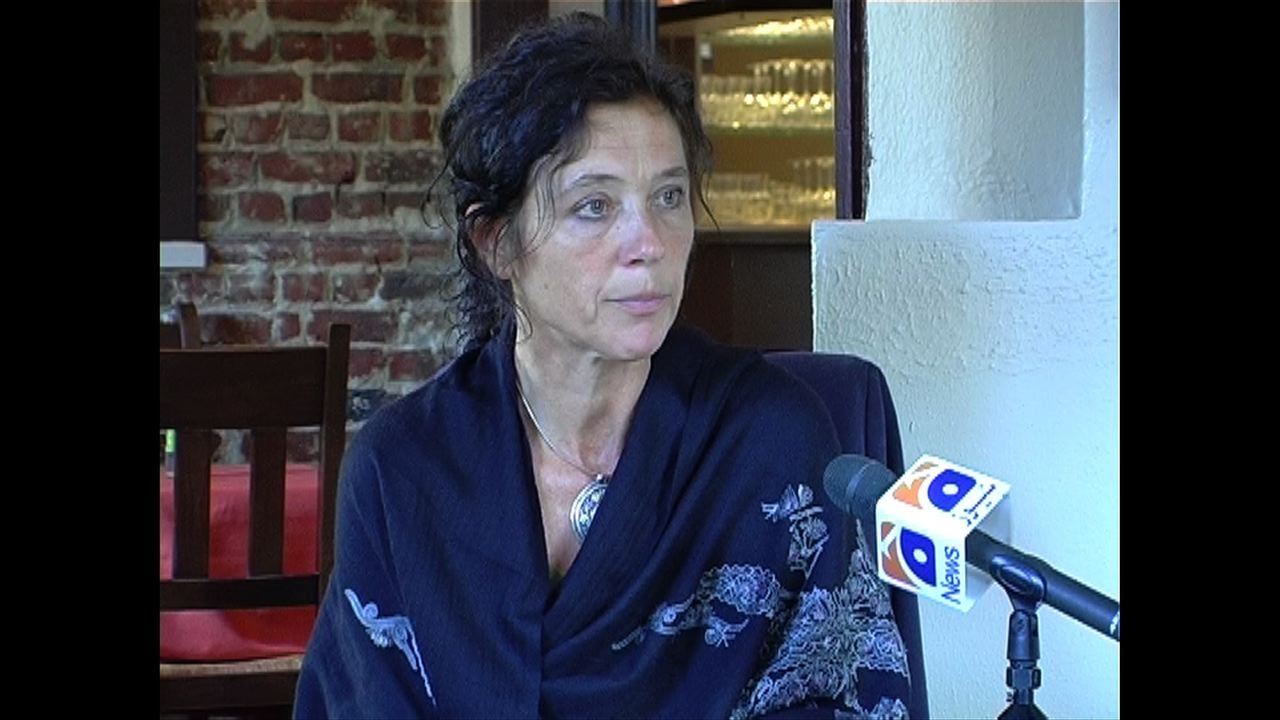India is using travel ban as weapon against human rights activists
March 02, 2017

Amjad Bashir, Member of Parliament from Yorkshire, and an outspoken critic of Indian atrocities in Kashmir, gave a scathing criticism of the country for refusing him a visa.
Addressing the EU Parliament's Sub-Committee on Human Rights, Bashir criticised the Indian government's refusal to grant him visa as a nominated member of the delegation that recently visited the country. The delegation was visiting India as preparation for the EU-India summit on Free Trade Agreement scheduled in September this year.

Refusal of visa is a proof of Indian efforts to hide facts and to deny human rights activists access to the situation on ground, Bashir said. He said that it was unethical and undiplomatic of the government as he wasn’t informed beforehand about the visa refusal. “Had my colleagues known in advance, they would have boycotted the visit,” he told Geo.tv.
He said his outspoken criticism of India’s inhuman behaviour towards Kashmiri people was the only reason behind the refusal of the visa. “I want good relations between EU and India and I want to see upcoming summit as a success, but it cannot be done without considering draconian laws and severe human rights violations committed by 800,000 Indian forces”, he said. “We all saw how brutally India killed, wounded and blinded thousands of young Kashmiris”.
The delegates also termed the visit “as one of their worst experience as EU delegates to any country in the world,” according to Bashir. He said that many of the scheduled meetings were not held and the four-day visit was cut short to two days.
Shashi Tharoor, India’s Chairman of the Parliamentary Committee on External Affairs, told the visiting EU delegation that human rights were an internal matter and no outsider had a right to "interfere" in the country’s internal affairs. India is signatory to many international human rights covenants and other human rights documents.
According to Bashir, India also mentioned Pakistan multiple times in terms of security issues in South Asia. India was also critical of Pakistan-China and China-Russia relations. India expressed its reservations about EU sanctions on Russia, which it said, was pushing Russia closer to China.
India is increasingly using travel ban to stop human rights activists from unearthing truth especially in conflict areas such as Kashmir. The ban is being used as a weapon against activists and independent journalists to stop them from raising issues such as discrimination against Dalits and human rights abuses in Kashmir. Even reporters and activists covering issues such as child labour or the country’s huge defence spending are unwelcome by the increasingly xenophobic Modi government.
Distinguished and influential human rights activist, Gerard Oonk, who has been campaigning against child labour in India for years was barred from the country despite having strong connections with and cooperation from Indian labour unions. Oonk had successfully advocated for the protection of child rights and the end of child labour. He also influenced legislation on child labour in Netherlands and to prevent business with firms who exploit children in manufacturing sector.
Famous human rights activist Marjan Lucas had to face a similar situation in 2003 when she organised a seminar in University of Amsterdam, Netherlands after visiting Srinagar. Since the seminar’s focus was human rights violations in Indian-occupied Kashmir, India put her on a travel ban.

Local human right activists and independent journalists are also under increased pressure from the Indian government. Many such activists are not allowed to travel abroad because of their vocal criticism of the draconian laws imposed in the conflict areas of India.
This 'strategy' is particularly used against the internationally acclaimed human rights activists belonging to IoK. Director of Jammu Kashmir Coalition of Civil Society, Pervez Imroze, was banned to travel outside India after his speech in The Hague about the human rights violations and illegal detentions. His passport was confiscated by Indian authorities for a decade. He could not travel even when he was given a human rights award in Europe. It took a lot of international pursuance and internal pleading before he was allowed to travel to Geneva to attend the HRC session in September last year.
Kashmiri human rights activist Khurram Parvaiz is the author of the report "Structure of Torture in Jammu & Kasmir" and a recipient of many European awards. After presenting his report last year in the European parliament, he was put under travel ban once he was back in India. He was about to board a flight from Delhi airport last September when he was stopped, detained and later sent to jail.












